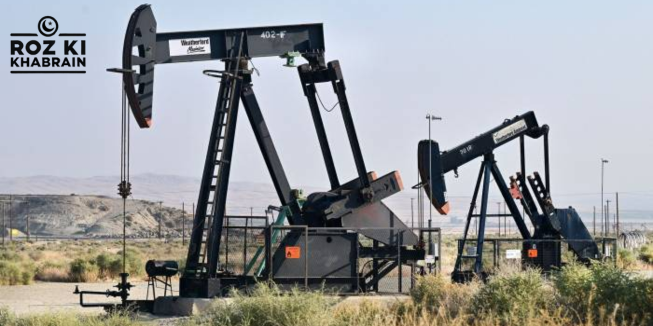Oil prices rose on Friday following Russia’s announcement that it had launched a ballistic missile at Ukraine and warned of an expanding conflict, which raised concerns over tightening crude supplies.
By 0007 GMT, Brent crude futures had gained 14 cents, or 0.2%, to $74.37 per barrel, while U.S. West Texas Intermediate crude futures increased by 17 cents, or 0.2%, to $70.27 per barrel.
Russian President Vladimir Putin stated on Thursday that the war in Ukraine was evolving into a global conflict after the U.S. and the UK allowed Ukraine to strike Russia using their weapons. In response, Russia launched a new hypersonic medium-range ballistic missile at a Ukrainian military facility, warning that Moscow could retaliate further.
Following approval from President Joe Biden’s administration, Ukraine used U.S.-made ATACMS missiles on November 19 and British Storm Shadow missiles, as well as U.S.-made HIMARS, on November 21, Putin claimed.
Despite declines in output following import bans related to the Ukraine invasion and supply restrictions by OPEC+, Russia remains one of the world’s largest crude oil producers, with an output of approximately 9 million barrels per day this month.
Ukraine has used drones to target Russian oil infrastructure, including a June attack on four Russian refineries using long-range drones.
While concerns over the war supported oil prices, swelling U.S. crude and gasoline stocks limited price increases. Data released this week showed crude inventories rose by 545,000 barrels to 430.3 million barrels in the week ending November 15, while gasoline inventories increased by 2.1 million barrels to 208.9 million barrels.
Analysts expect another rise in oil inventories in next week’s data. “We expect a rebound in production and U.S. refinery activity next week, which could have negative implications for both crude and key products,” said Jim Ritterbusch of Ritterbusch and Associates.
Meanwhile, China, the world’s largest crude importer, announced new policy measures on Thursday to boost trade, including support for energy product imports, amid concerns over potential tariffs from President-elect Donald Trump.




